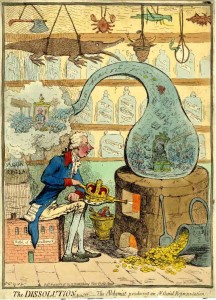 “Getting and Spending” European Literature and Economics in the Long Nineteenth Century
“Getting and Spending” European Literature and Economics in the Long Nineteenth Century
KU Leuven, Faculty of Arts
December 10-12, 2014
Deadline: June 22, 2014
Keynote speakers:
Angela Esterhammer (University of Toronto)
Ludovic Frobert (Ecole Normale Supérieure de Lyon)
Richard Gray (University of Washington)
This conference proposes to examine the national and international interaction between economics and literature on the basis of the personal and textual networks that connect economists and (wo)men of letters. The long nineteenth century presents a crucial stage in this history: covering the golden age of political economy, the rise of alternatives to capitalism, and the paradigmatic shift from classical to neo-classical economics, the period saw literature and economics assert their discursive specificities. The conference aims to establish the ways and mechanisms by which the divide between literature and economics was bridged, and to situate this nexus in the context of exchanges within and between European nations. It is the committee’s hope that this approach will at once embrace and challenge the established scholarship of the New Economic Criticism, pushing it forward in recognition of significant recent international advances in the field.
To this end, the committee welcomes papers and proposals for panels on the literary reception of political economy and the economic reception of literature in and between European nations. Suggested topics include:
- Literary responses to economic events: the restriction crisis of 1797-1821, financial crunches, panics and bubbles
- The translation, adaptation and retranslation of economic texts and motifs between languages
- The image of the economist, industrialist, speculator in literature; the image of the poet or artist in political economy
- Representing economics: commodification, circulation, competing notions of value
- Competing economic ideologies and their literary treatment: mercantilism, capitalism, socialism
- The rhetoric and poetics of economics: metaphor, anthropomorphism, ambiguity
- The ethics and aesthetics of economics: sympathy, trust, moral sentiments, consumption, desire
- Stereotypes in economic representation: intersections with nationalism, racism, anti-Semitism
- Interactions between the “Big Three”—Britain, Germany, and France—and “peripheral” nations like the Low Countries